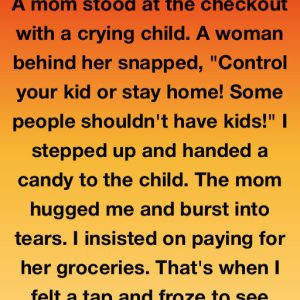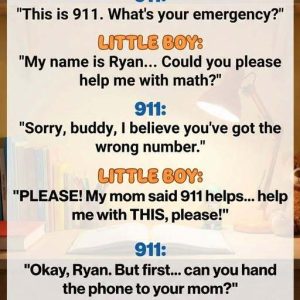I was fourteen when my mom died, just months after her divorce from my dad. She’d been my anchor. When she was gone, Dad buried himself in work, and I floated like a ghost.
A year later, he remarried. Karen arrived in a cloud of sharp perfume, bright lipstick, and smiles that never reached her eyes. She redecorated, called Mom’s keepsakes “junk,” and rolled her eyes whenever I mentioned her. By the time I turned eighteen, the mask was off.
On my birthday, she sat me down: “You’re an adult now. Time to pay rent.” I nodded, biting my tongue. What she didn’t know was that Mom had left the house to me. The deed had finally landed in my hands.
Karen pushed control: Dad’s paycheck, groceries, even access to Mom’s things. One night she cornered me in the kitchen. “Not in my house,” she said.
“Actually,” I said, pulling out the deed, “it’s not your house at all.”
Her face drained. “This is fake,” she snapped.
“It’s not,” I said. “Which means if anyone owes rent, it’s you.”
She exploded and waited for Dad to come home, unleashing threats and guilt trips. I had kept peace long enough. I started documenting everything—receipts, recordings, photos. Dad began noticing the inconsistencies: missing grocery money, unexplained shopping, manipulations.
The breaking point came when he came home early and found her at the table with another man, laughing too loudly, fingertips on his sleeve. When confronted, she turned it back on him. I laid out my folder—proof of everything. Her excuses died.
Dad told her to leave. No speeches. No bargaining. Just go. She packed, slamming the door behind her. Weeks later, she filed for spousal support, claiming emotional abuse. We could barely afford a fight. I had enough. Mom had left me a modest savings account. I hired a lawyer who dismantled her story piece by piece. The judge dismissed it and warned her about frivolous filings.
The house breathed again. Dad and I started finding our way back—cooking, fixing the shed, telling stories. He apologized for remarrying too fast and for not protecting me. I forgave him.
Months later, a letter arrived. Karen asked for forgiveness and wanted to “come home.” For a second, I almost felt sorry. Then I remembered the sneers, the threats, the cruelty. I wrote back one sentence: “Home was never yours to begin with.”
I never heard from her again.
Here’s what I know now: family isn’t titles or paperwork. It’s how you treat one another when no one is watching. My mom was gone, but the love she left carried me through. What I did wasn’t revenge—it was protection. And sometimes the sweetest justice isn’t fury—it’s a life that finally feels like home.





